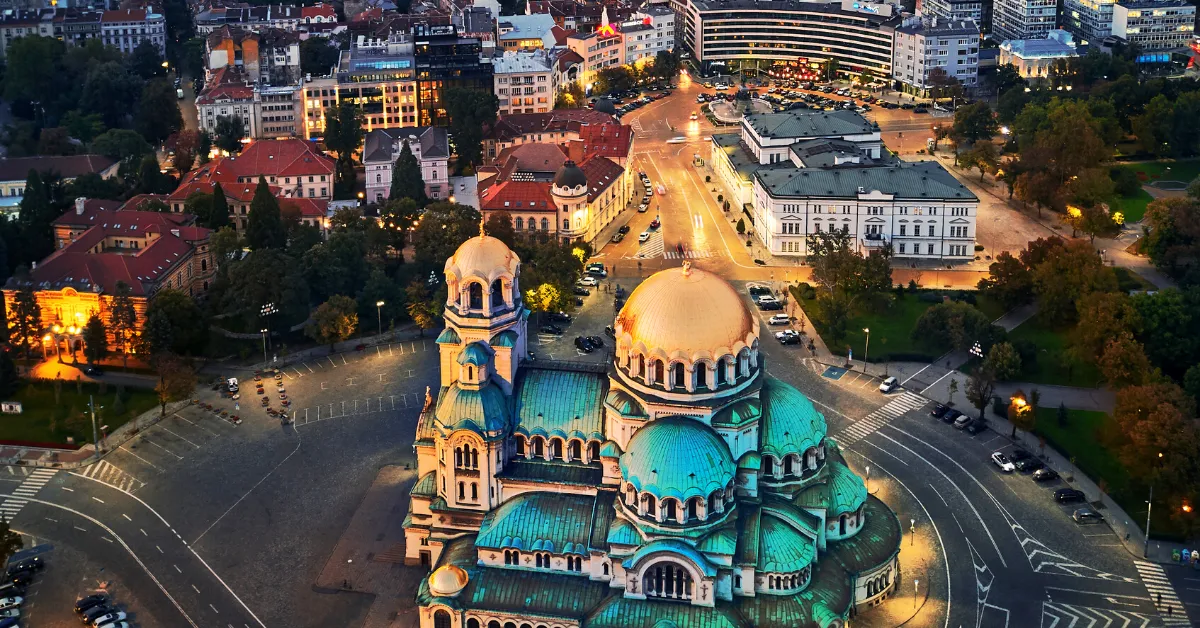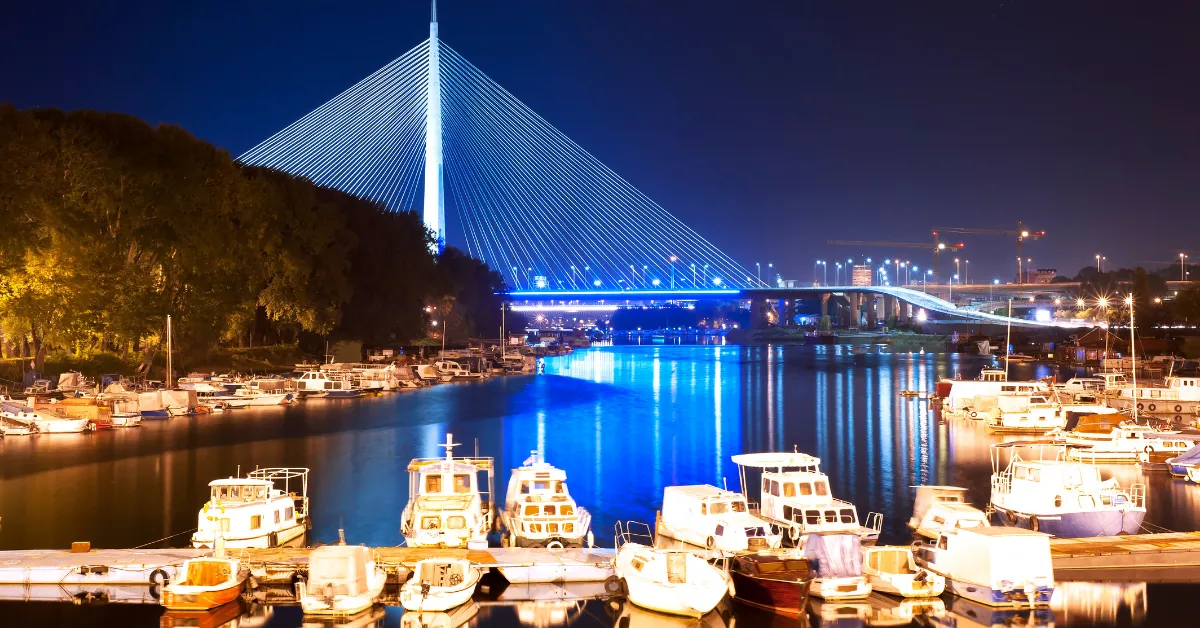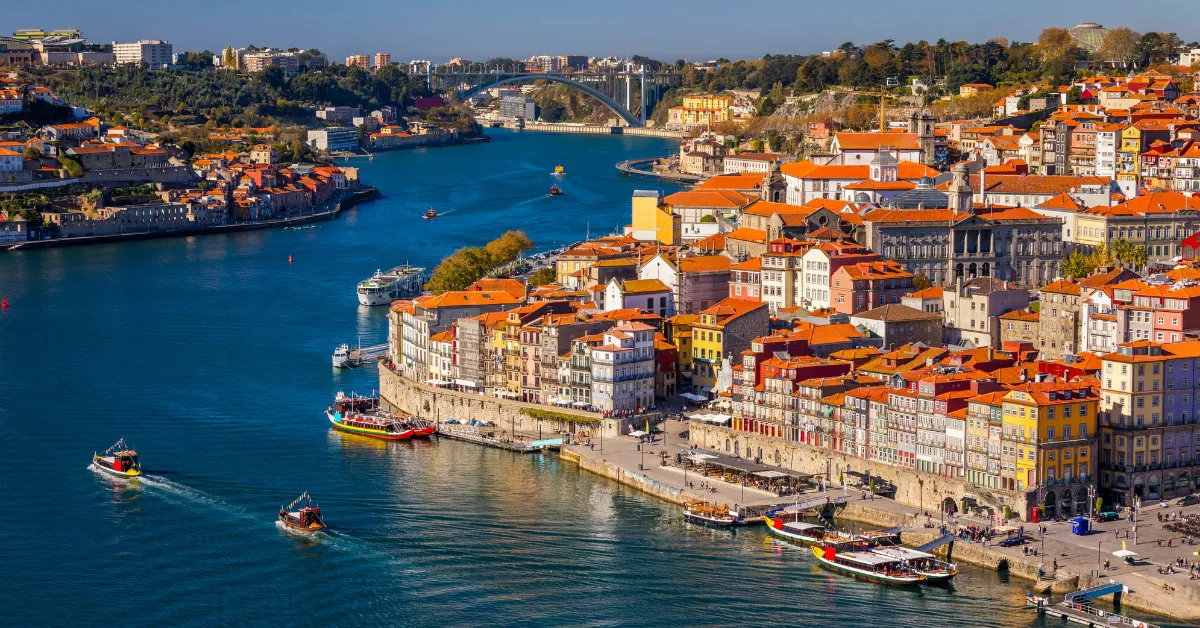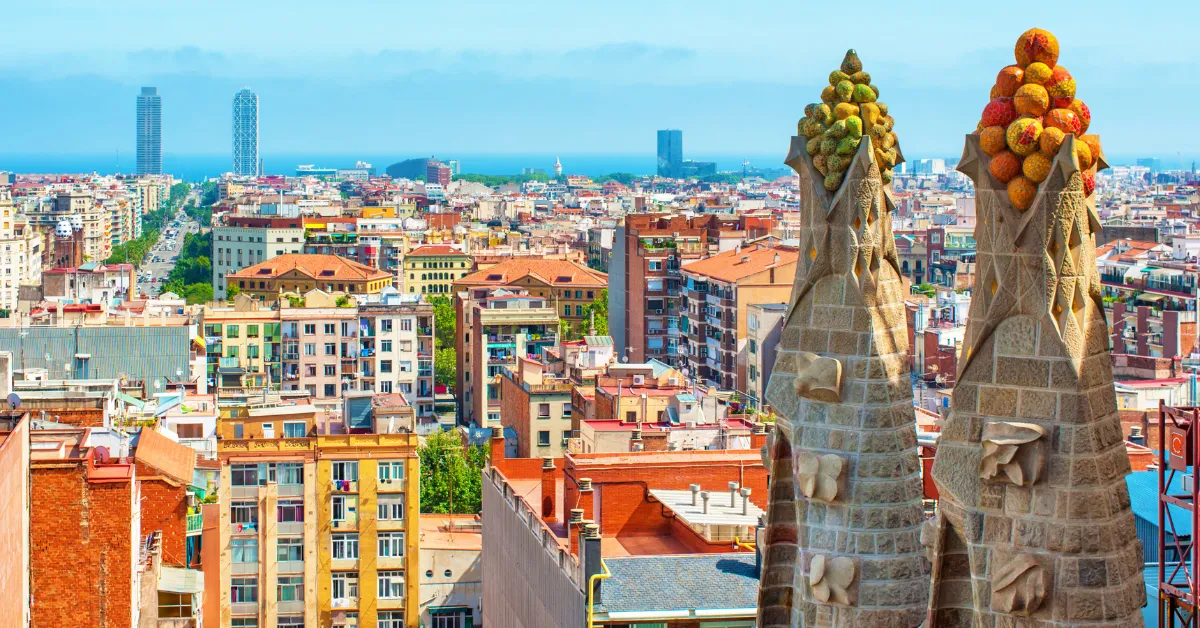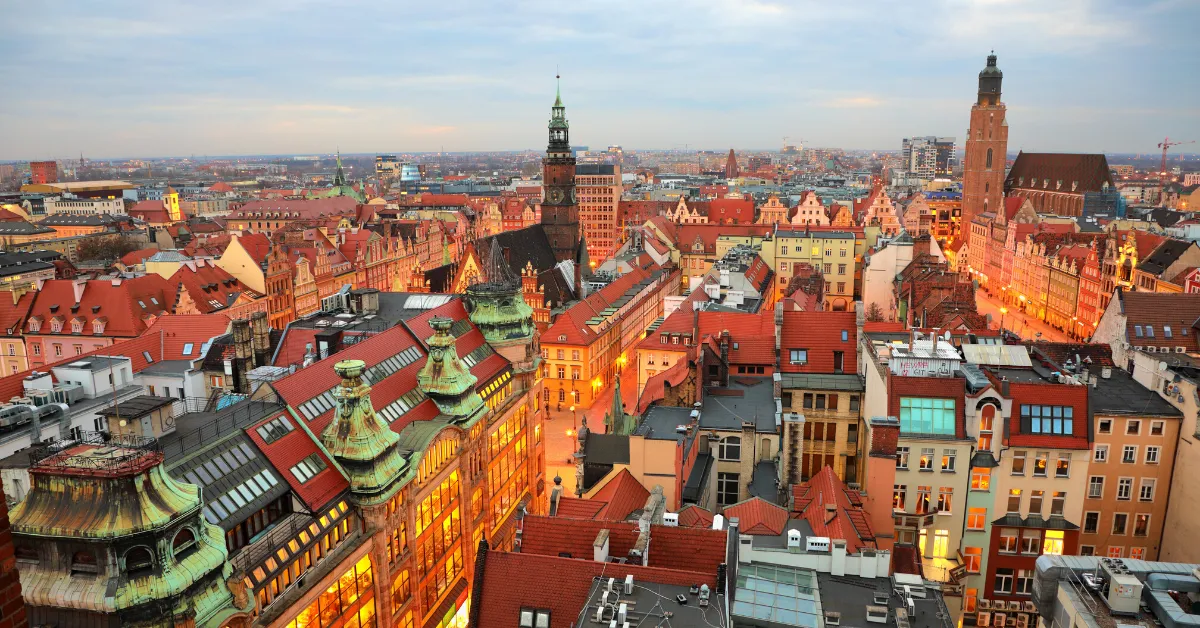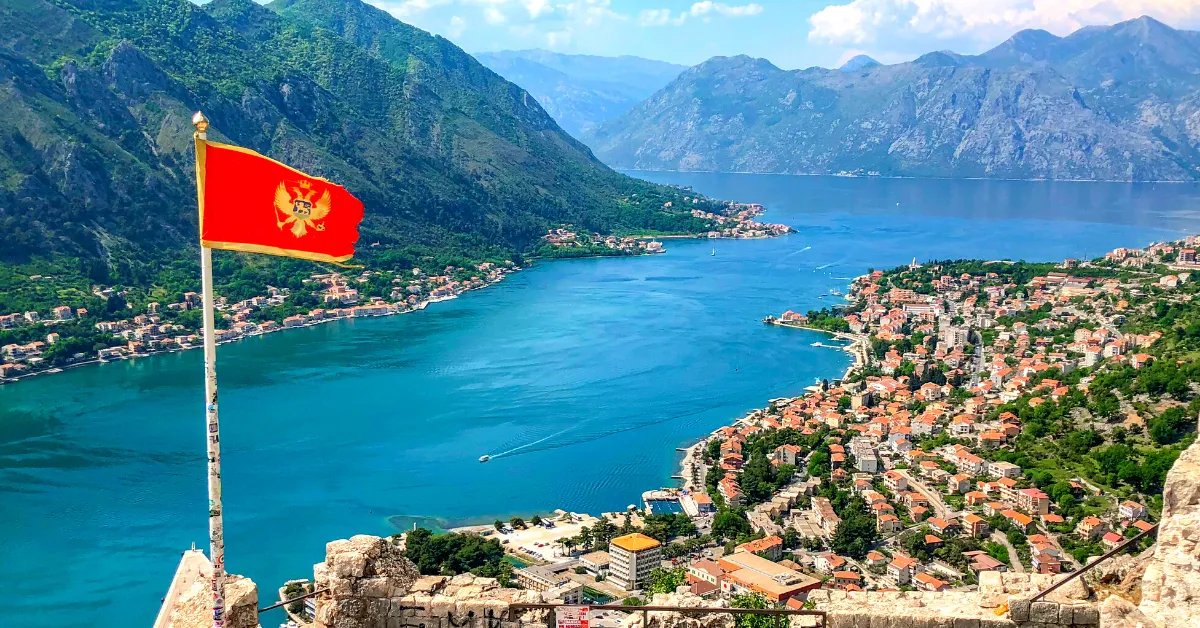Whether you are planning to live or work abroad – or simply looking for the ideal place to retire – then you have probably considered Europe.
However, if you are on a budget you are probably wondering what the cheapest counties to live in Europe are.
Ready To Travel? Don't Go Without Travel Insurance.
I recommend SafetyWing Nomad Insurance, an affordable travel insurance offering automatic monthly payments that you can cancel anytime. I've been using it since 2019, and I can assure you it's the perfect solution for nomads like you and me. Learn more by reading our SafetyWing review.It may have a reputation as being expensive, but it can actually be much cheaper to live in certain parts of Europe than you may think.
Not only can you enjoy a lower cost of living, but also a whole new way of life as you embrace a totally different culture.
Here in this guide, I have listed the cheapest countries to live in Europe.
I’ve included the cost of living for each, a brief look at the culture to expect, and details of visa requirements for expats.
Bulgaria
The Balkan country of Bulgaria is as diverse in its terrain as it is in its history.
Incredibly scenic, its landscape ranges from mountainous skiing regions to beautiful beaches for sunbathing.
Meanwhile, its mixture of Ottoman, Slavic, Persian, and Greek influences gives it a fascinating culture, filled with traditional costumes, dances, and music.
There is plenty to do – both indoor and outdoor – the food is great, and the people are both warm and welcoming.
Bulgaria is also one of the cheapest places to live in Europe.
The country’s capital – Sofia – is one of the most popular areas for ex-pats to settle. Here you can expect to pay around €350 per month for a nice two-bedroom apartment in the city center and as little as €200 per month on the outskirts.
Venture even further out into the villages and €200 per month may even get you a small house.
Dining out will cost you around €5 for a three-course lunch or around €10 for a three-course dinner. Local produce is very cheap to buy, and – an added bonus – often organic.
Utility bills are among the lowest in Europe. The monthly cost of the internet, for example, is around €10 and the household cost of electricity is only around €310 for the entire year!
A Long Term Residency Permit is needed to live in Bulgaria permanently.
It can be quite easily obtained from a local Immigration Office, but it’s a good idea to take someone with you to translate if you don’t speak Bulgarian.
You should be either employed or self-employed in Bulgaria, engaged in a recognized program of education, or have the funds to support yourself and your family throughout your stay.
You will also need a Bulgarian bank account.
Serbia
If you are looking for cheap countries to live in Europe, Serbia is definitely worth considering.
Located in southeast Europe and once part of Yugoslavia, this landlocked country became a stand-alone sovereign republic in 2006.
Its culture has been influenced by various ethnic groups throughout its history, and nowhere is this more evident than in its diverse and wonderful food.
The people are friendly and there is plenty to explore, with many art galleries and over 140 museums.
The landscape is varied, too, with beautiful and unique features like the rock formations at Davola Varos and the waters of Uvac.
Serbia also boasts modern and vibrant cities, from Belgrade – its capital – to the lovely Vojvodina near the border with Hungary.
Employment opportunities are limited in Serbia, but it remains a popular choice with digital nomads. Belgrade is a favorite city for ex-pats to settle, but the town of Zemun is a good choice too, combining history with a warm, homely feel.
The average monthly rent for a two-bedroom apartment is around €410, with a further €125 per month covering all utility bills. You can expect to spend around €10 on lunch at a good restaurant, and transportation is very affordable.
If you choose to stay in Serbia for between 3 months and a year, you will need a temporary visa.
To qualify, you need to have either work, education, or family in the country.
Many digital nomads prefer to choose the easier, three-month option.
This allows you to stay – visa-free – for up to 90 days as long as you register with the police within 48 hours of your arrival.
After a brief visit to a nearby country at the end of those 90 days, you will then be allowed to stay in Serbia again for another three-month period.
Portugal
The beautiful country of Portugal has long been a favorite with tourists. And what’s not to love?
The scenery is beautiful – especially the spectacular beaches – and the climate is warm.
It offers an interesting mixture of busy towns and sleepy villages, and the pace of life is wonderfully relaxed.
It is also one of the most affordable countries in Europe in which to live, especially when you compare prices with other Western European countries.
There is a large ex-pat community here, and Lisbon in particular is a mecca for digital nomads.
Rents in Portugal are generally low, although apartments in the city center can be quite small. Families moving to Portugal permanently tend to head for the more rural or suburban areas instead.
You can expect to pay around €500 per month for a two-bedroom apartment in a rural area, although this can rise to about €900 per month in a city apartment or in one of the towns of the Algarve.
A meal at an average restaurant will set you back around €7.50 and groceries are extremely reasonably priced.
Internet/TV costs start at around €30 and utilities are fairly low, too, at around €120 per month. The great thing with Portugal is that the mild climate keeps these costs low pretty much year-round.
The process for obtaining a visa is one of the simplest in Europe, although it differs slightly depending on where you are from.
If you want to stay in Portugal for between 90 days and one year you will need to apply for a temporary-stay visa, but for any stay longer than one year you will need a residency visa.
If you wish to work in the country then you will also need to obtain a work permit.
In all cases, you will need to demonstrate that you have the means of supporting yourself and your family.
After living in Portugal for five years you can then apply for permanent residency. One year later you can apply for citizenship.
Spain
Spain has a thriving ex-pat community – and it is easy to see why. There is something for everyone to enjoy living in Spain!
Whether you are looking for fast-paced life in a big city or a more relaxed way of living in one of the many beautiful beach towns, you will find it here.
Spain is a country proud of its rich culture and there are countless festivals to enjoy and stunning architecture to admire. The people are friendly, the food is divine, and the weather is wonderful.
It has often been considered the cheapest place to live in Europe for ex-pats, although this can vary quite a bit depending on location.
The average rent across the country is around €600 per month, and utilities are generally around €100 per month.
But you can expect your rental costs to rise significantly if you want to live in the major cities like Madrid or Barcelona.
Groceries tend to be very cheap, and there are many markets selling very reasonably priced local produce.
Dining out is relatively inexpensive, too, with the cost of a three-course lunch coming in at around €15 (including a glass of wine!).
Getting around Spain is easy thanks to the excellent transport infrastructure, and it is also extremely affordable.
If you wish to stay in Spain for longer than three months you will need to apply to the Spanish consulate in your home country for a long-stay visa. This last for 12 months and must be renewed.
The exact type you need depends on how long you wish to stay and your reason for moving to the country.
If you plan to retire to Spain, then you can apply for a non-lucrative visa – the easiest way to obtain residency.
Alternatively, you can invest €500,000 in property, which gains residency for you and your family.
Poland
Of all the countries with a low cost of living in Europe, Poland is somewhat unique.
That’s because – although prices are slowly rising as the country’s tourist industry strengthens – it is still relatively less expensive to live in the major cities than in other European countries.
Poland is a wonderful place to settle. It has lovely beaches and warm summers during which to enjoy them. There is also lots of stunning scenery, with soaring mountains and beautiful lakes.
Its cities are charming and historic and there are many ancient buildings, churches, and castles to visit. There are also many cultural events to enjoy, with regular art festivals, exhibitions, and concerts.
Private healthcare is very affordable and of a high standard, whilst the country’s transport infrastructure is very efficient and cheap to use.
A small city center apartment in Poland costs around €500 per month to rent, but you can find family-sized accommodation in rural areas for as little as €650 per month.
Utilities average around €180 per month with internet costing around €12 per month.
Groceries are very cheap, and you can expect to spend around €8 for a meal at a restaurant, with the quality being very high.
EU citizens can work in Poland without a work visa, but anyone else will require the relevant permit, which would be issued regionally.
A D-type visa is also required, which allows you to work in Poland for up to one year, along with a short-term residence permit.
To obtain a visa, you need to prove that you have medical insurance plus the financial means to take care of yourself and your family.
Montenegro
When looking for the cheapest country in Europe to live in, you should definitely take the time to check out the lesser-known option of Montenegro.
This small country – a next-door neighbor to Serbia – enjoys a lovely Mediterranean Riviera along with its low prices.
Montenegro has beautiful natural scenery and some of Europe’s most rugged terrain.
Its landscape is dominated by mountains – hugely popular with hikers – whilst its position on the Adriatic coast makes it a great spot for those passionate about sailing.
It is very much a country where the East meets the West. You can clearly see this in the Italian style of its architecture compared to the Greek and Turkish influences in its food.
The weather is very pleasant, too, with a climate similar to those in Italy and Greece.
Renting in Montenegro is extremely affordable, ranging from as little as €200 per month for a small apartment outside the city center to around €550 per month for a family-sized city center apartment.
Utility bills are – on average – around €95 per month for a family, with an internet connection costing around €22 per month.
The cost of groceries is among the lowest in Europe and dining out is very affordable, too, with a three-course meal at an average restaurant coming in at around €13.
Like most of the Schengen area, the residency process for Montenegro allows you to stay for up to 90 days, depending on your country of origin.
For a longer stay, you will either need an employment visa, study in the country, start a business there or invest in property. Proof of financial means is required. Montenegro recently announced a digital nomad visa.
If you want to retire to Montenegro, the easiest option is via the Residency by Investment scheme. This requires an investment of €250,000 in property and a €100,000 donation to the government.
Moving there soon? Learn how to buy a SIM card in Montenegro.
Final Thoughts On The Cheapest Places To Live In Europe
I hope this guide has helped you choose not only the cheapest European country to live in, but also the one that will suit your family the best.
Remember that average costs vary widely and it will always be cheaper to live outside the major cities in the more rural areas.
Similarly, tourist areas will always be more expensive than those that are a little off the beaten track.
But whatever your needs – whether you plan to work remotely or want to find the ideal place to retire – you should be able to find somewhere suitable in this list of the most affordable European countries.
Want to learn more about living abroad? Read one of the following guides:

